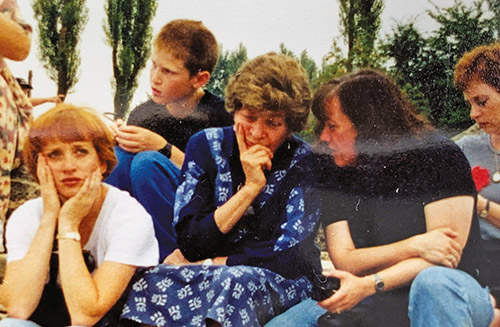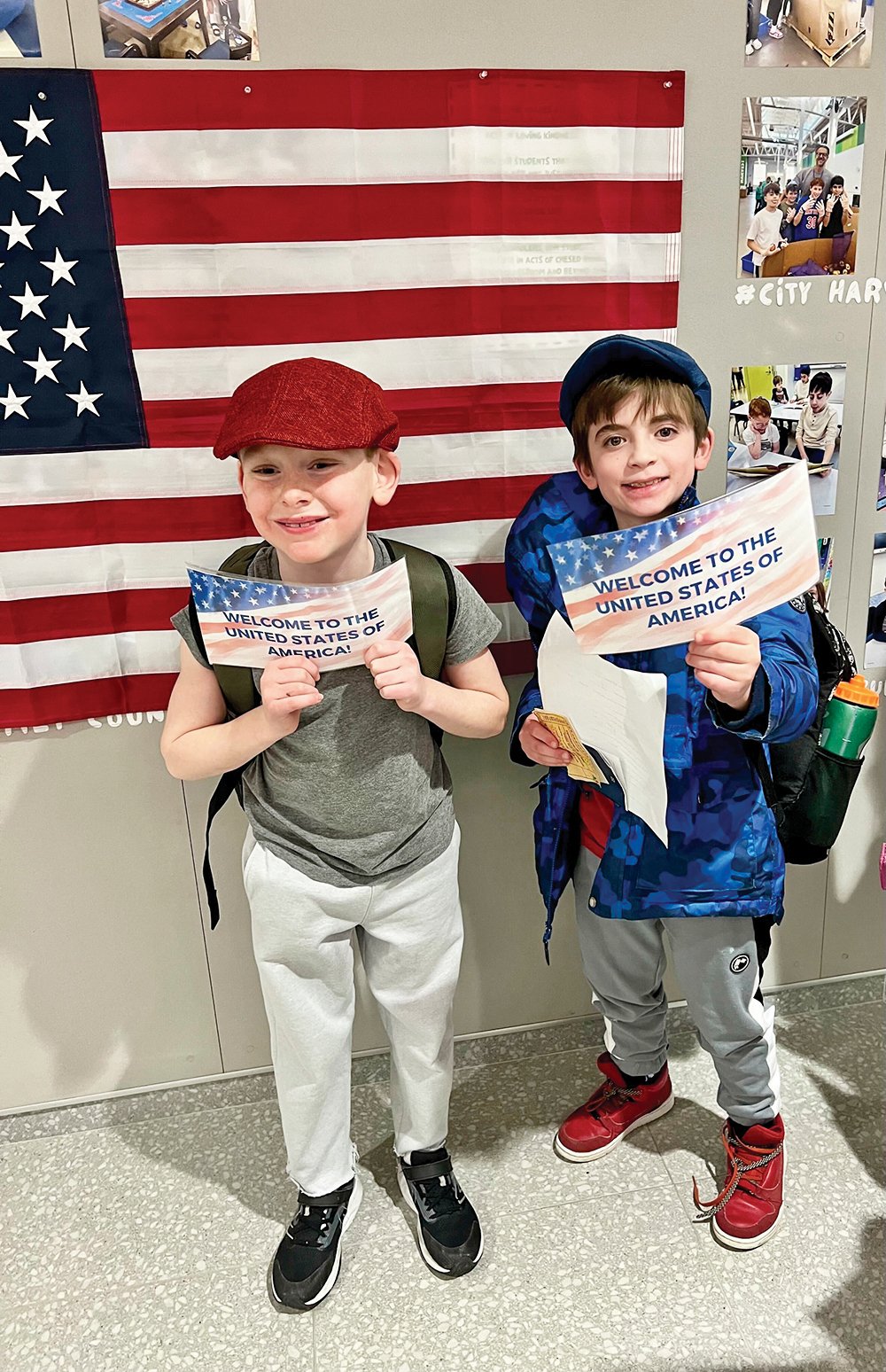


Auschwitz.
The name itself cannot be whispered. Its pronunciation is naturally guttural, harsh and punishing, evoking auditory images of the horrors that befell millions who passed through the gates that cynically declared “Arbeit Macht Frei.”
On the eve of International Holocaust Remembrance Day, the date marking the 1945 liberation of the Auschwitz-Birkenau death camp by the Red Army, I am looking through 23 year old pictures and remembering Mom’s bold and courageous return to Auschwitz.
Her ability to go back was fortified by the love and emotional support of her three daughters and 45 cousins from around the world who accompanied her that day, on a family heritage trip organized by my father’s Israeli first cousin, Techiya Tamari, in the summer of 1998.
For years after surviving Auschwitz and other slave labor and concentration camps, neither of my parents could conceive of the idea of returning, nor understand anyone else who would willingly choose to revisit the site where their parents and scores of immediate and extended family members were gassed, starved, beaten or worked to death. Having survived, why on earth would someone go back there?
As the second generation, it was painful to approach our parents with any suggestion of showing us these places in person. Broaching such a tender topic was complicated by the reality that we grappled with trauma of our own. On a very different level than the Holocaust survivor generation, we harbored uniquely 2nd Gen Auschwitz nightmares, developing phobias and anxiety that we later came to understand were not uncommon in the children of survivors: an irrational fear of train rides, the unfounded belief that we would experience similar trauma when we reached the adolescent age they were during WWII, an aversion to hearing the German language, or the simple, but exaggerated, worry of disappointing our parents in any way that would add to the life difficulties they’d already experienced. These fears and phobias were quashed in the face of the exponentially greater struggle that our parents confronted in the post-war years as they navigated through life as orphaned survivors of unfathomable trauma.
So, in the early years, the repugnant thought of a survivor returning to Auschwitz one day by choice was anathema to 2nd Gen as well. Our psyche whispered to us: Don’t. Go. There. LITERALLY.
But as the years passed, an increasing number of survivors did indeed go back, bringing along their grown children and, increasingly, grandchildren and great-grandchildren. The establishment of Steven Spielberg’s Shoah Foundation in the 1990’s no doubt helped normalize the idea of recounting war experiences and revisiting WWII mass graves. His prescient initiative gave voice to over 50,000 survivors whose video testimonies have been immortalized for future generations—including Mom’s in 1996, but too late for Dad, who passed in 1981.
And contrary to the fear of reigniting repressed trauma or resuscitating stifled grief, confronting the demons of Auschwitz brought an unexpected catharsis. I know this personally since our family experienced this on many individual levels on that unforgettable Roth-Admoni-Citron family heritage trip, arriving at Auschwitz 50-people strong on July 26, 1998.
The first three pictures were taken on that day, at the destroyed remains of the gas chambers where Mom’s
parents and younger siblings breathed their last labored breaths. Among the jumble of broken brick strewn around us, we collectively recited the Kaddish prayer memorializing them and the millions of others who perished in that terrible place and at hundreds of other extermination sites throughout Europe. The tears shed at this site helped unpeel tightly packed layers of suppressed grief, revealing an unexpected wash of liberation and triumph.
The final image shows the family members who were able to participate on this trip—nearly 50 of us standing in three lines, ordered by generation in front of the Auschwitz rail lines that brought our grandparents, aunts, uncles, cousins and millions of others to their deaths. Our support of Mom that day fortified the rest of us too and helped release a collectively cathartic and undeniable surge of relief.
To quote Mom’s words that day:
“We survived. Hitler tried to destroy us, but he did not succeed. Where are the Nazis now? They are gone and we are here. We are the victors. We triumphed.”
By Rifky (Roth) Atkin













